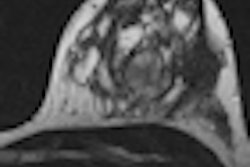
India has been experiencing an increase in breast cancer that is reaching epidemic proportions, according to a news report published in theLancet. By 2020, the disease is expected to overtake cervical cancer as the most common type of cancer among all women in India.
Based on an analysis of cancer contracted between 1982 and 2005 by women living in Bangalore, Chennai, Delhi, and Mumbai, the Indian Council of Medical Research in New Delhi estimates that 23 women out of 100,000 get breast cancer, compared with 10 women per 100,000 a decade ago. Breast cancer has already surpassed cervical cancer as the cancer most frequently diagnosed in urban women, according to data from India's National Cancer Registry Programme (The Lancet, March 2012, Vol. 37:9820, pp. 992-993)
According to Dr. Toral Gathani, a breast cancer surgeon and head of epidemiology for the INDOX Cancer Research Network, the upward trend in breast cancer incidence may be attributed to the "Westernization" of Indian women, a factor of the country's rapid urbanization and economic development. Gathani suggested that urban women have increased their exposure to estrogen, and therefore risk of cancer, by having fewer children and breastfeeding them less than prior generations. Gathani also said that breast cancer risk has increased for urban Indian women who eat a more Westernized diet, which can lead to obesity, and for those who may drink alcohol.
INDOX, a partnership established in 2005 between the University of Oxford in the U.K. and a network of nine comprehensive cancer centers in India to conduct research to reduce death and suffering from cancer in India, has initiated a case-control study to identify risk factors for developing breast cancer. The primary aim of the case control study is to investigate the association between reproductive patterns and dietary patterns highly prevalent among Indians and the subsequent risk of breast cancer.
An interview-administered questionnaire has been developed to capture data from both rural and urban women. It began to be administered in the spring of 201, with an expected duration of 24 months.
The findings of this large, multicenter study may help explain the shifting trends in breast cancer among Indian women.
For further information, go to: http://www.indox.org.uk/node/34



















